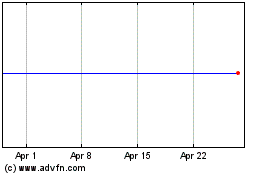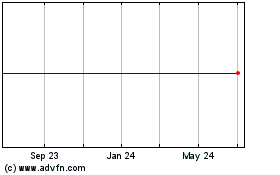New Dose of Brilinta Now Available in US Pharmacies
September 29 2015 - 8:00AM
Business Wire
BRILINTA 60 mg available for long-term use in
patients with a history of heart attack
AstraZeneca (NYSE:AZN) announced today that BRILINTA®
(ticagrelor) 60-mg tablets are now available in US pharmacies. On
September 3, 2015, the US Food and Drug Administration (FDA)
approved a new 60-mg dosage strength for BRILINTA to be used in
patients with a history of heart attack beyond the first year.
BRILINTA is approved to reduce the rate of cardiovascular (CV)
death, myocardial infarction ([MI], also known as heart attack) and
stroke in patients with acute coronary syndrome (ACS) or a history
of MI. For at least the first 12 months following ACS, BRILINTA is
superior to clopidogrel. BRILINTA is the first and only FDA
approved oral antiplatelet to demonstrate superior reductions in CV
death vs clopidogrel at 12 months.
“Patients continue to be at risk for a second heart attack, even
if their first heart attack was more than a year ago and they
continue on the recommended therapies prescribed to them,” said
Tonous Silfani, PhD, Executive Director, CV Thrombosis, US Head of
Marketing, AstraZeneca. “We wanted to make this new 60-mg dosage
strength available as quickly as possible so that healthcare
providers can consider adding BRILINTA 60 mg to the treatment
regimen for patients with a history of heart attack beyond the
first year.
The dosing of BRILINTA in the management of ACS is 90 mg twice
daily during the first year after an ACS event. After one year,
patients with a history of heart attack can now be treated with 60
mg twice daily. BRILINTA must be used with a daily maintenance dose
of aspirin of 75-100mg.
AstraZeneca is committed to supporting patient access to
BRILINTA and connecting patients with the information and support
they need. For patients who have been prescribed BRILINTA,
AstraZeneca offers the BRILINTA Patient Support Service (BPSS) tool
that provides resources and support to help patients and caregivers
from hospital discharge throughout the ACS treatment journey. To
help loved ones, the program offers important patient education and
coaching in addition to savings offers, refill reminders, personal
pharmacy locator, co-pay calculator, and coverage verification and
information. To enroll in BPSS, call 1-888-512-7454 or enroll
online at www.BRILINTA.com.
IMPORTANT SAFETY INFORMATION FOR BRILINTA (ticagrelor) 60-MG
AND 90-MG TABLETS
WARNING: (A) BLEEDING RISK, (B) ASPIRIN DOSE AND
BRILINTA EFFECTIVENESS
A. BLEEDING RISK
- BRILINTA, like other antiplatelet
agents, can cause significant, sometimes fatal bleeding
- Do not use BRILINTA in patients with
active pathological bleeding or a history of intracranial
hemorrhage
- Do not start BRILINTA in patients
undergoing urgent coronary artery bypass graft surgery
- If possible, manage bleeding without
discontinuing BRILINTA. Stopping BRILINTA increases the risk of
subsequent cardiovascular events
B. ASPIRIN DOSE AND BRILINTA EFFECTIVENESS
- Maintenance doses of aspirin above
100 mg reduce the effectiveness of BRILINTA and should be
avoided
CONTRAINDICATIONS
- BRILINTA is contraindicated in patients
with a history of intracranial hemorrhage or active pathological
bleeding such as peptic ulcer or intracranial hemorrhage. BRILINTA
is also contraindicated in patients with hypersensitivity (eg,
angioedema) to ticagrelor or any component of the product
WARNINGS AND PRECAUTIONS
- Dyspnea was reported in about 14% of
patients treated with BRILINTA, more frequently than in patients
treated with control agents. Dyspnea resulting from BRILINTA is
often self-limiting
- Discontinuation of BRILINTA will
increase the risk of MI, stroke, and death. When possible,
interrupt therapy with BRILINTA for 5 days prior to surgery that
has a major risk of bleeding. If BRILINTA must be temporarily
discontinued, restart as soon as possible
- Avoid use of BRILINTA in patients with
severe hepatic impairment. Severe hepatic impairment is likely to
increase serum concentration of ticagrelor and there are no studies
of BRILINTA in these patients
ADVERSE REACTIONS
- The most common adverse reactions
associated with the use of BRILINTA included bleeding and dyspnea:
In PLATO, for BRILINTA vs clopidogrel, non-CABG PLATO-defined major
bleeding (3.9% vs 3.3%) and dyspnea (14% vs 8%); in PEGASUS,
BRILINTA vs aspirin alone, TIMI Total Major bleeding (1.7% vs 0.8%)
and dyspnea (14% vs 6%)
DRUG INTERACTIONS
- Avoid use with strong CYP3A inhibitors
and strong CYP3A inducers. BRILINTA is metabolized by CYP3A4/5.
Strong inhibitors substantially increase ticagrelor exposure and so
increase the risk of adverse events. Strong inducers substantially
reduce ticagrelor exposure and so decrease the efficacy of
ticagrelor
- Patients receiving more than 40 mg per
day of simvastatin or lovastatin may be at increased risk of
statin-related adverse events
- Monitor digoxin levels with initiation
of, or change in, BRILINTA therapy
INDICATIONS
BRILINTA is indicated to reduce the rate of cardiovascular
death, myocardial infarction (MI), and stroke in patients with
acute coronary syndrome (ACS) or a history of myocardial
infarction. For at least the first 12 months following ACS, it is
superior to clopidogrel.
BRILINTA also reduces the rate of stent thrombosis in patients
who have been stented for treatment of ACS.
Patients can find out more information about BRILINTA at
www.BRILINTA.com or by calling 1-888-412-7454.
Please read full Prescribing Information,
including Boxed WARNINGS, and Medication
Guide.
You are encouraged to report negative side effects of
prescription drugs to the FDA. Visit www.fda.gov/safety/medwatch or
call 1-800-FDA-1088.
NOTES TO EDITORS
About PEGASUS-TIMI 54
PEGASUS-TIMI 54 (PrEvention with TicaGrelor of SecondAry
Thrombotic Events in High-RiSk Patients with Prior AcUte Coronary
Syndrome – Thrombolysis In Myocardial Infarction Study Group) is
AstraZeneca’s largest outcomes trial with more than 21,000 patients
from over 1,100 sites in 31 countries. The study assessed BRILINTA®
(ticagrelor) tablets at either 60 mg twice daily or 90 mg twice
daily plus once daily low-dose aspirin compared to placebo plus
once daily low-dose aspirin for the secondary prevention of
atherothrombotic events in patients ≥ 50 years of age who had
experienced a heart attack one to three years prior to study start
and had at least 1 risk factor for thrombotic cardiovascular events
( age ≥ 65 years, Diabetes mellitus requiring medication, at least
one other prior MI, evidence of multivessel coronary artery disease
or a creatinine clearance < 60 ml/min). The primary efficacy
endpoint was a composite of cardiovascular (CV) death, myocardial
infarction (MI) or stroke at 36 months. Patients were treated for
at least 12 months and up to 48 months with a median follow-up time
of 33 months. Only the 60 mg dose is approved for use in patients
with a history of MI beyond 12 months. The study was conducted in
collaboration with the Thrombolysis in Myocardial Infarction (TIMI)
Study Group from Brigham and Women’s Hospital (Boston, MA,
USA).
About AstraZeneca
AstraZeneca is a global, innovation-driven biopharmaceutical
business that focuses on the discovery, development and
commercialisation of prescription medicines, primarily for the
treatment of cardiovascular, metabolic, respiratory, inflammation,
autoimmune, oncology, infection and neuroscience diseases.
AstraZeneca operates in over 100 countries and its innovative
medicines are used by millions of patients worldwide. For more
information please visit www.astrazeneca-us.com.
BRILINTA is a registered trademark of the AstraZeneca group of
companies.
View source
version on businesswire.com: http://www.businesswire.com/news/home/20150929005612/en/
US Media InquiriesMichele Meixell, + 1 302 885 2677
AstraZeneca (NYSE:AZN)
Historical Stock Chart
From Mar 2024 to Apr 2024

AstraZeneca (NYSE:AZN)
Historical Stock Chart
From Apr 2023 to Apr 2024
